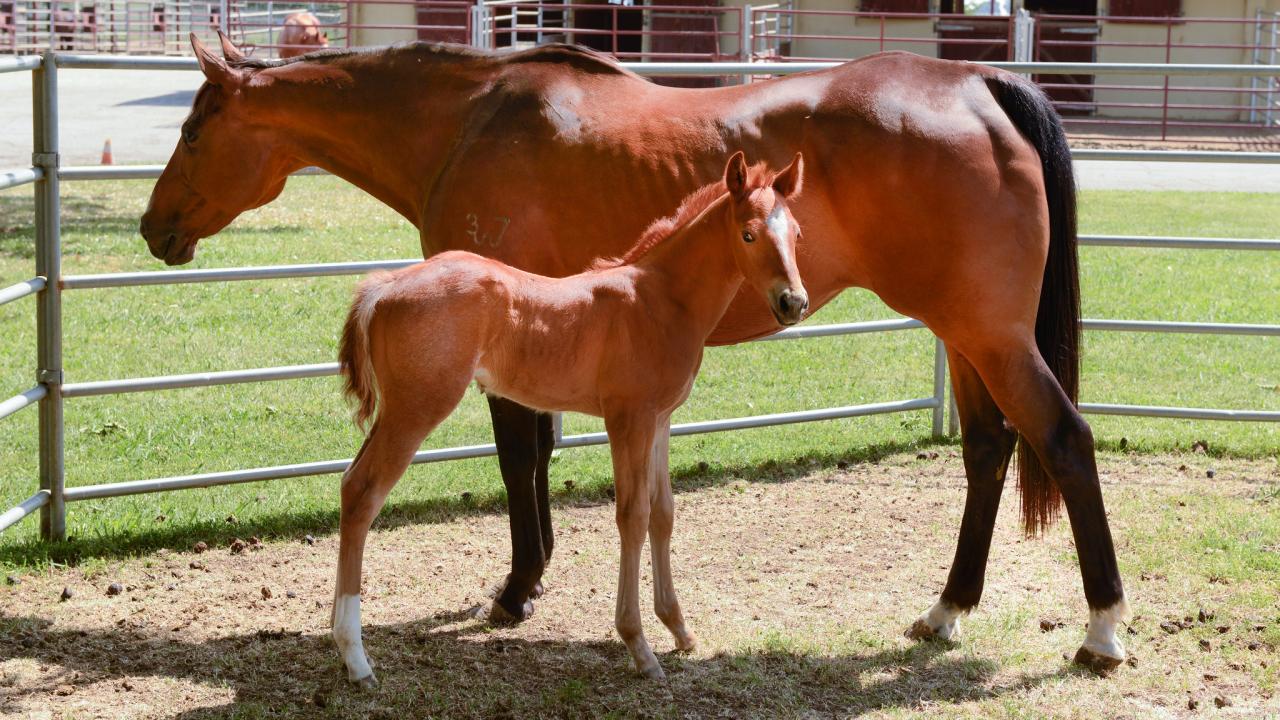
UC Davis Increases Equine Reproduction Services
--This article first appeared in Pulse magazine--
The Equine Reproduction Service at the UC Davis veterinary hospital's Large Animal Clinic provides routine and advanced equine reproductive care, including artificial insemination, ultrasonographic pregnancy diagnosis, fertility evaluation, semen collection and evaluation, transvaginal aspiration of oocytes, and embryo transfer.
The school’s Veterinary Assisted Reproduction Laboratory studies the fundamental and applied biology of sperm, eggs, embryos, and the biology of the equine placenta. Due to the laboratory’s combined expertise and experience studying in vitro production of equine embryos, the school is able to offer equine embryo production using intracytoplasmic sperm injection (ICSI) in vitro fertilization as a clinical service to the horse-owning public. The laboratory is one of the few reproduction centers in the world that is equipped with live embryo monitoring system, allowing us to evaluate the embryo formation precisely.
In the past 10-15 years, reproductive technology has experienced significant growth for breeders, particularly with the advent of ICSI. UC Davis’ tradition of serving horse breeders and its long-standing relationship with the horse industry in California and around the world led to a wide range of advances in equine reproduction.
The laboratory also offers other embryo services including transvaginal ovarian aspiration of eggs, freezing embryos, embryo biopsy services, and many others. Clients and referring veterinarians are also able to ship oocytes from anywhere in the U.S. for ICSI production of embryos for storage and shipping for embryo transfer.
UC Davis has been producing horse embryos using ICSI for several years and has produced several foals using this procedure. The school typically obtains a 50% egg maturation rate and of those eggs that mature, clients can expect about 30% of sperm-injected eggs to become transferrable blastocysts that can be shipped or frozen for later transfer to recipients.
Recently, the reproduction service opened a newly renovated clinical teaching and research space at the school’s Center for Equine Health. The space includes four custom-designed stocks, all new flooring, student meeting space, and an adjacent expanded laboratory. The new space offers “benchtop to bedside” clinical translation – a hallmark of the future Veterinary Medical Center and a major advantage of seeking treatment at a teaching hospital.
“This new space gives our service a more efficient place to teach and practice,” said Dr. Ghislaine Dujovne, chief of the Equine Reproduction Service. “The opportunities for students in this new treatment and research area will increase significantly, improving the quality of their education in equine reproduction.”
In addition to advanced reproduction services, clients and referring veterinarians can also utilize the school’s Veterinary Genetics Laboratory to help with embryo testing to detect genetic diseases, sex, hair color, and other features.
For the Northern California equine community, the Equine Reproduction Service now offers field service visits to local facilities within a service area of campus. For more information on equine reproduction services, please contact the UC Davis Large Animal Clinic at 530-752-0290.
# # #
